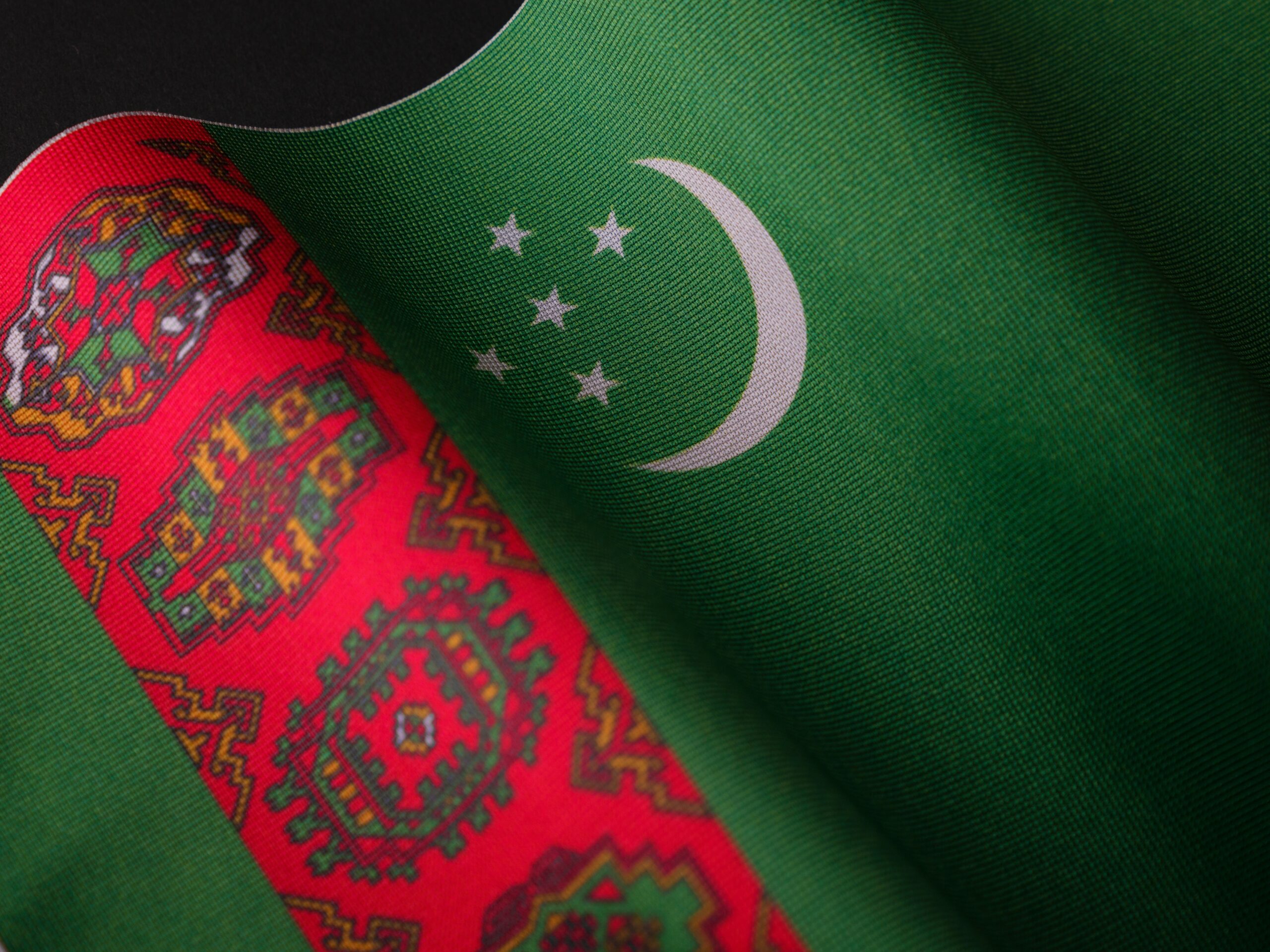Turkmen Neutrality: A Way to Survive
On December 12, 2023, Turkmenistan celebrated the 28th anniversary of its neutrality. Since the UN General Assembly adopted a special resolution on Turkmenistan’s Permanent Neutrality in 1995, the principle has become a key feature of Ashgabat’s foreign policy, squaring several geopolitical circles for the young state. A geopolitically difficult position.
Geography is destiny. While there is no land border between Russia and Turkmenistan—only a naval one in the Caspian Sea—and Ashgabat has no conflicts with its immediate neighbors, Kazakhstan, Uzbekistan, Afghanistan, or Iran, there are several potential threats that its autocratic leadership had to reckon with ever since the country’s independence from the Soviet Union in 1991. It is the smallest country in Central Asia and also the richest resources-wise, notably—with natural gas. This might become a valuable prize in geopolitical games. In this context, the neutrality of Ashgabat is a Turkmen version of multipolar policy, which allows different geopolitical players to have their influence on the country. However, there is a risk that geopolitical actors will start fighting among themselves. One of them is very active in the region: Turkey.
Turkey actively tries to expand its sphere of influence beyond the Caucasus, to Central Asia and Turkmenistan in particular, whose vast gas reserves are vital for Turkey’s energy security. It is quite easy for Ankara to establish a warm relationship with Ashgabat due to cultural proximity: Turks, Azerbaijanis, and Turkmen understand each other without an interpreter. Their languages are even closer to each other than Russian, Belarusian, and Ukrainian. Therefore, Ankara has an idea to revive projects for the construction of a gas pipeline across the Caspian Sea from Turkmenistan to Azerbaijan. Turkey is ready to ensure gas sales and security. Currently, China is the main importer of Turkmen gas, which has secured the construction of a gas pipeline to its territory. Moscow also signed a contract for the purchase of Turkmen gas in 2019.
Thus, the interests of three players, Turkey, Russia, and China, are now colliding in Turkmenistan. However, Ashgabat has not yet become a full member of the Organization of Turkic States. At the same time, Beijing is interested in maintaining the status quo. The Chinese One Belt, One Road initiative seeks to revive the old Silk Road, where the ancient Turkmen city of Merv was the so-called Gate to Central Asia. As for Russia, Turkey’s attempt to extend its influence to Turkmenistan is a challenge for Moscow.
Relations with Iran
Turkmenistan’s relations with Iran, one of the key players in the region should also be considered. Iran shares the second-longest border with Turkmenistan, rivaled only by the Iraqi one. It is essential for Teheran to maintain a cordial relationship with Ashgabat to fight terrorism, especially, ISIS, and prevent drug smuggling from Afghanistan. Furthermore, there are ethnic Turkmen on both sides of the border and deep historical and cultural ties unite both countries. But the most significant reason for cooperation between Ashgabat and Tehran is that Iran serves as the most practical route connecting the Caucasus and Turkey with the Persian Gulf through the Caspian Sea. At the same time, Turkmenistan acts as a gateway to Central Asia markets for Iran.
In December 2023, Ashgabat affirmed the rise of natural gas exports to Turkey involving Iran, using the Korpedzhe-Kordkuy gas pipeline system. In August 2023 Teheran “reported an increase in gas volumes received from Turkmenistan, reaching 8 mcm per day.”
Mediation Efforts
Neutrality allows Ashgabat to serve as a mediator to bring the conflicting parties together for parley. For instance, Turkmenistan may become a platform for negotiations between Russia and Ukraine, as it was during the 5th round of inter-Tajik talks in 1995.
Ashgabat gained practical experience in peacekeeping during the settlement of the Tajik civil war (1995-96) and through UN peacekeeping efforts for a peaceful and political solution to the civil conflict in Afghanistan (1999). A country’s neutrality also has a positive impact on its economic development: it secures the safety of investments, assets, and deposits, regardless of political views, religion, and nationality. Turkmenistan’s neutral status also led to the interest of international companies in the country and ensured a serious inflow of foreign capital into its national economy.
The Impact of the Russo-Ukrainian War
The Russian Federation would like to attract Ashgabat to multipolar projects, in particular, the EAEU. As Russian Prime Minister Mikhail Mishustin said, “Including Turkmenistan in the integration processes will have a positive impact on the country’s economy and will be helpful for all countries of the five. It will help carry out many projects that are important for citizens of our countries”. In this case, Turkmenistan is trying to avoid joining the EAEU as it will narrow its possibilities for a geopolitical maneuver and further push it into the Russian sphere of influence.
In fact, western sanctions against Russia have provided new opportunities for the two countries: Turkmen businesses can fill some vacant niches in the Russian market, while Russian companies are interested in the Turkmen market. Russian business participates in worth about $3.5 billion. About 200 Russian companies work in Turkmenistan. The result of such cooperation is evident: Ashgabat became the largest client of KAMAZ according to its last contract for 2000 vehicles.
In 2022 bilateral trade between the two countries reached one billion US Dollars. For comparison, in 2021 it was only 865 million Dollars. Turkmenistan has established close ties with some Russian regions: the Republic of Tatarstan, St. Petersburg, Sverdlovsk, Kemerovo, Chelyabinsk, and Astrakhan regions. Ashgabat raised its exports of cotton, textile, agro-industrial, and chemical products to Moscow. Moreover, the two states cooperate in the fields of shipbuilding, pharmaceutical industry, high-tech products, exploration, and machine industry. In general, the transit traffic of Russian goods through Turkmenistan to other countries has increased. Two sea routes have become very important: Turkmenbashi-Makhachkala and Turkmenbashi-Astrakhan.
Russian Interests in Central Asia
As Moscow is seeking more trade opportunities in the Global South, Turkmenistan plays a big part. It is situated on the eastern branch of the North-South Transport Corridor (INSTC) and joined this project. In the future, this trade route will provide many benefits to logistics, service, and trade. The eastern route of the INSTC allows cargo to be delivered 3 days faster than the traditional route from the Black Sea.
Moscow and Ashgabat cooperate in other sectors, such as oil and gas production, energy, including nuclear, and the development of renewable energy sources. For example, the modernization of the Mary hydroelectric power station and a thermal power plant in Turkmenbashi is conducted with the involvement of the Russian company Power Machines.
Since Turkmenistan adheres to the policy of neutrality it always refused to join the Russia-led multilateral security organizations: the Shanghai Cooperation Organization and the Collective Security Treaty Organization. Ashgabat also doesn’t participate in joint military drills and maneuvers. Meanwhile the rise of the Taliban regime in Afghanistan forces Turkmenistan to be closer to Moscow. In October 2020, the joint security cooperation agreement was ratified by both countries. Of all post-soviet Central Asian states, Turkmenistan is most vulnerable to a possible invasion from Afghanistan due to its mostly flat terrain. Ashgabat also cooperates with the USA to deter Islamists. Turkmenistan buys weapons and equipment from different countries.
Ideological Neutrality
Concerning the war in Ukraine, Turkmen leaders don’t refrain from talking about it in the first place. The Turkmen press does not publish news about the war and Ashgabat didn’t participate in votes in the UN General Assembly on the war either on March 24, 2022, or on February 23, 2023. Turkmenistan follows also in its speech acts a strict neutrality policy, avoiding sensitive issues.
In general, relations between Russia and Turkmenistan have improved significantly over the past 2 years. As Vladimir Putin said at the ceremony for presenting foreign ambassadors’ credentials on 4 December 2023, both states “are developing multifaceted cooperation with friendly Turkmenistan”, their “political and economic ties are complemented by a wide range of contacts through parliaments, regions, and the public. In the humanitarian sphere, noteworthy projects include the establishment of the Russian-Turkmen University, the construction of a new building for the State Russian Drama Theatre, and an additional building for the Pushkin Joint Secondary School in Ashgabat”. “Russia has great respect for Turkmenistan’s policy of permanent neutrality”. It is ready “to continue fruitful cooperation on multilateral platforms, particularly within the CIS, the Caspian Five, and the Central Asia plus Russia format.”
However, not everything is rosy in Russo-Turkmen relations. Ashgabat doesn’t want to join the gas union of Russia, Kazakhstan, and Uzbekistan. Half of Turkmen gas goes to China through Uzbekistan and Kazakhstan. Ashgabat has grown wary of the growing Russian influence, as it sees Russia as a competitor. Russia has lost major Western markets, and it is forced to look for new ones to preserve the economy, and those are located in Asia, primarily in China, as well as in other countries. Russia was the main importer of Turkmen gas for many years. Moscow bought cheap gas from Turkmenistan and directed it to domestic needs, meanwhile selling its own product at a much higher price to the rich states of the European Union. If Turkmenistan enters a gas union with Russia, then Moscow can simply displace it from beneficial relations with China.
As we know, 3 geopolitical players are interested in Turkmenistan: Russia, China, and Turkey. But in fact, the USA is the 4th geopolitical player that considers Central Asia as its zone of influence. In this regard, the Big Game for Central Asia, and, in particular, Turkmenistan, has begun.
Photo by engin akyurt on Unsplash

